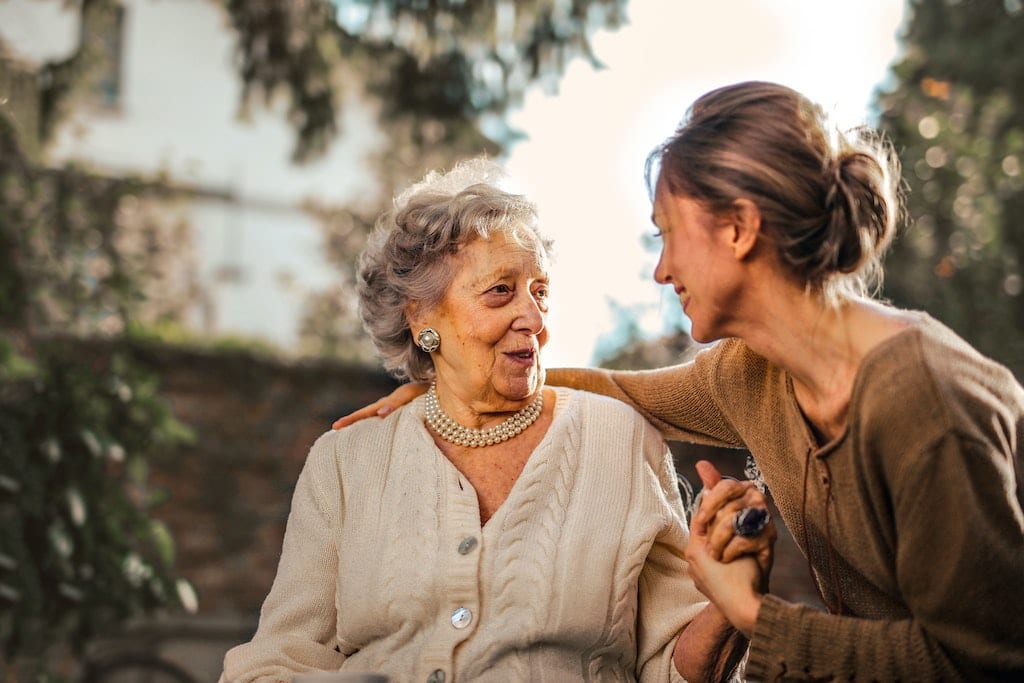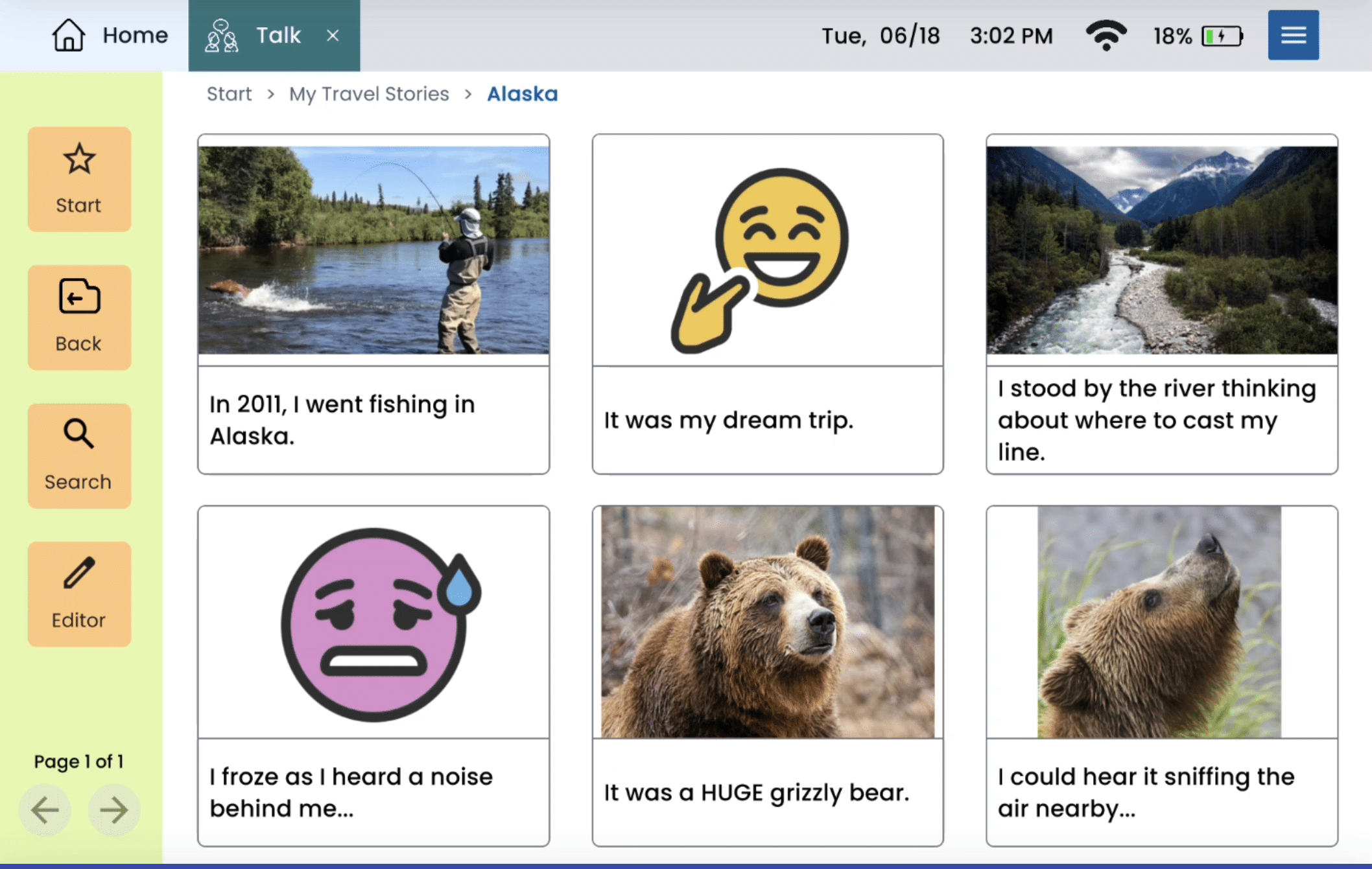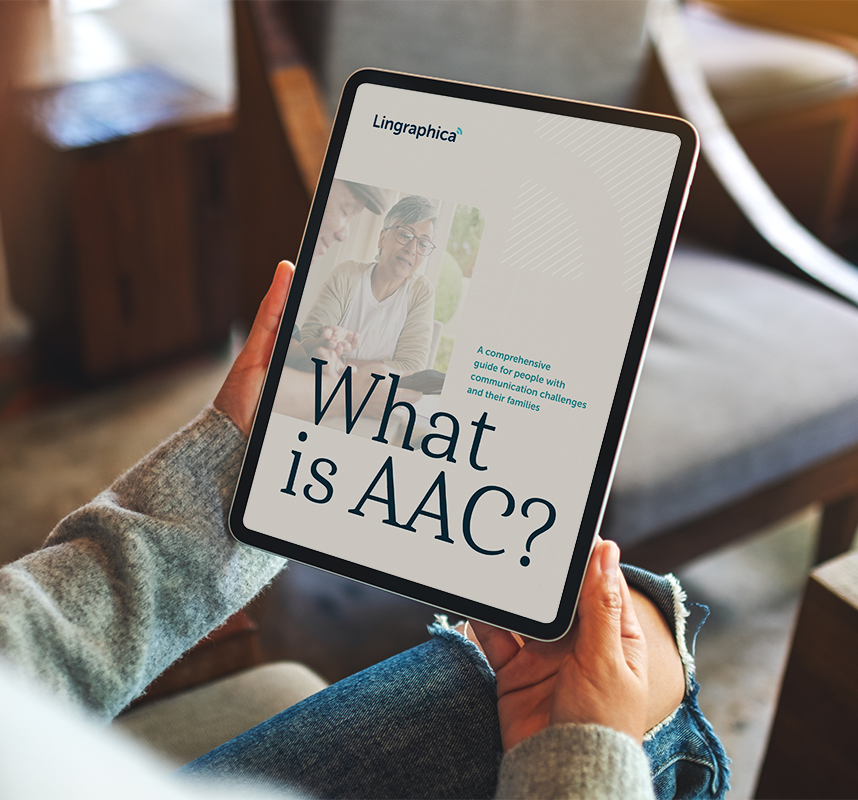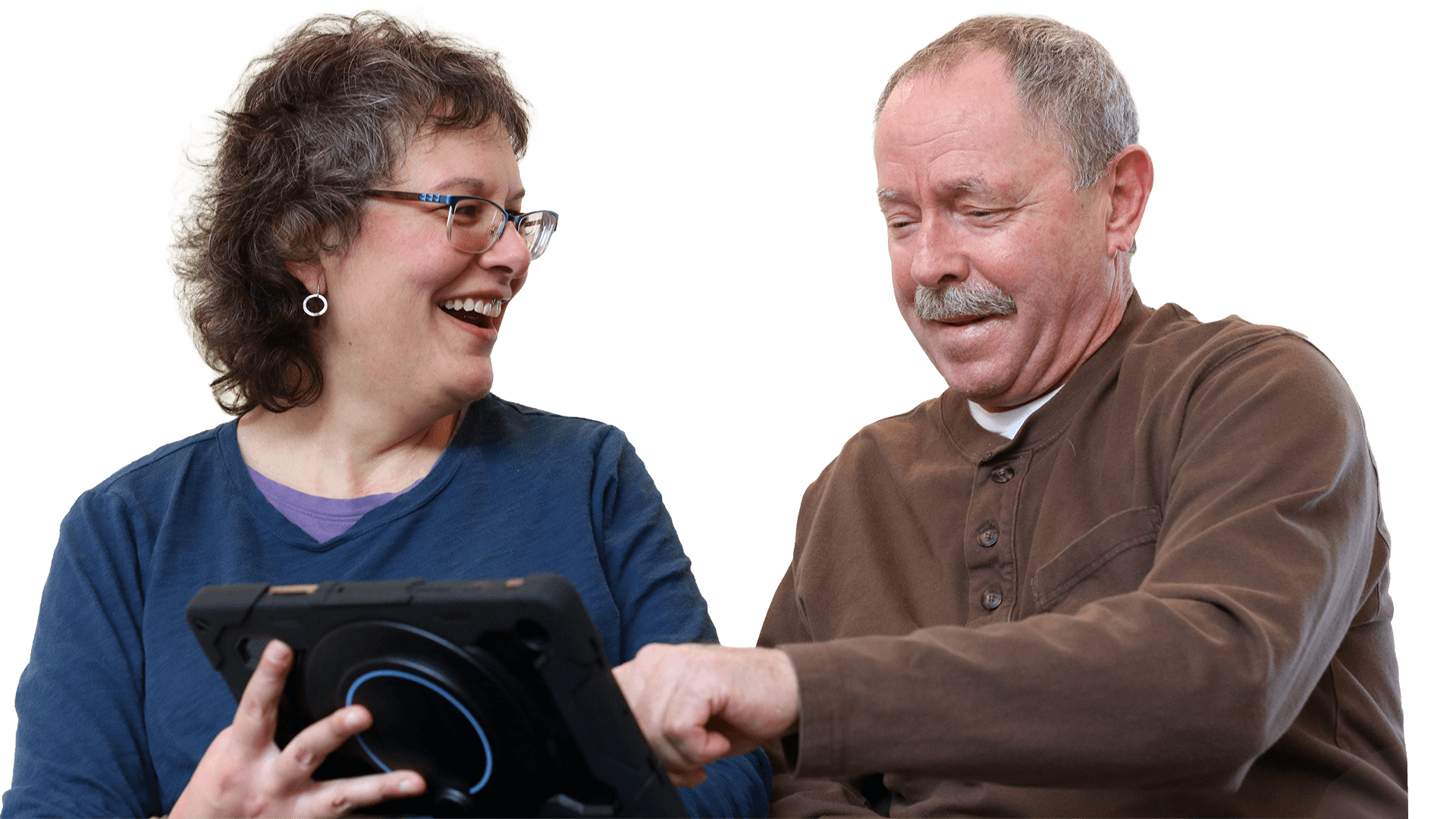A Q&A With “Their Words: An Aphasia Documentary Series” Director Amy Russo
Published on Jun 28, 2022
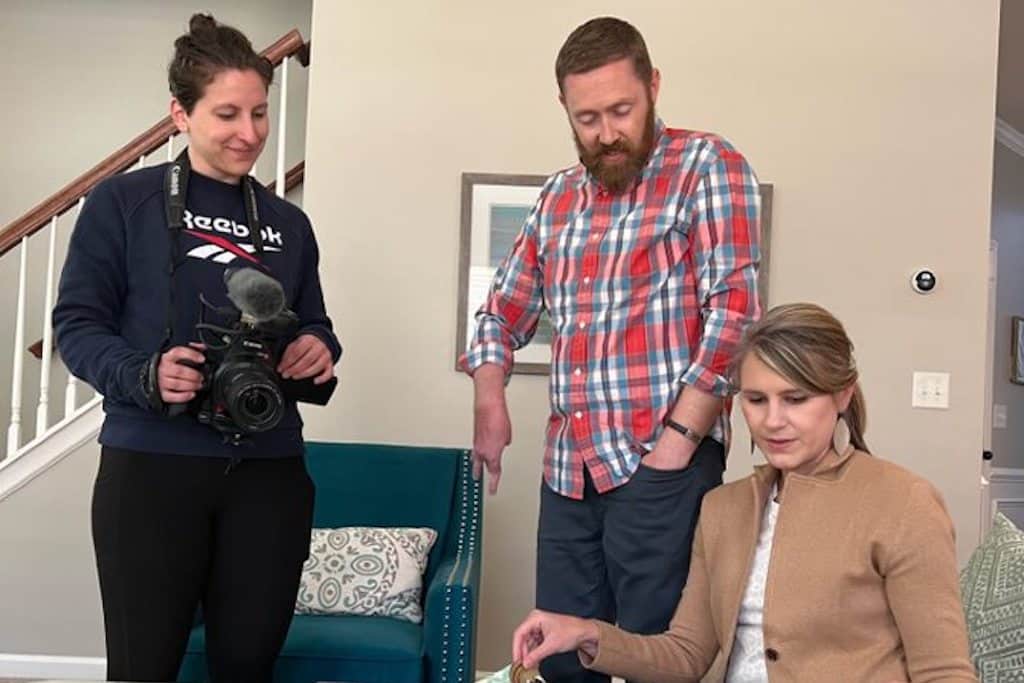
Amy Russo is Lingraphica’s Video Production Specialist and the driving force behind Their Words: An Aphasia Documentary Series. Here, we take a moment to ask Amy some questions about her goals, motivations, reactions, and more.
Aphasia is common, but often unheard of by the general public. Prior to joining Lingraphica, what sort of awareness did you have of aphasia, if any?
I had never even heard the word aphasia, let alone anything about it. My first project for Lingraphica was during my interview process. I had to create a video that answered the question “What is aphasia?” I learned as I went, and even then, I had no idea the scope and severity of its symptoms and effects on people’s lives. I hadn’t seen a real example of living with aphasia until I dug through our library of internal videos and had to make content designed for people with communication impairments. And even then, COVID forced our offices to go remote a week after I started the job, so my only exposure to people with aphasia was our Virtual Connections program, where I got a taste of what it’s like to personally communicate with someone with aphasia. I wasn’t face-to-face having a real-time conversation with someone with aphasia until I began casting for this project.
The individuals you covered in Their Words have quite different lived experiences with aphasia. How important was it for you to demonstrate that variety?
It was a top priority, if not the most important. Aphasia, like the people who have it, comes in all shapes, sizes, colors, varieties, severities, costs, etc. I go into more detail about our casting process and the thought behind our value of diversity in this article.
Why do you think the individuals featured in the series were so eager to share their stories with the world?
Everyone has their own reasons. But by and large, people with aphasia are often “silenced” by their impairment – that is, they’ve lost a lot of their ability to express themselves as they normally would have. Aphasia is most often an acquired disorder, so they’ve gone from full language capability to sometimes few to no words at all. That is an incredibly difficult change and a stifling challenge to overcome. They’ve been stripped of their words. So I believe they were eager to finally tell their stories on their own, to be given a platform where they, without judgment, were able to fully express themselves and have control over their own narrative. Aphasia is also very isolating, so social and personal connections become even more important, and sharing their stories will give them a great chance of creating more of those connections with people both in and out of the aphasia community.
What surprised you the most during your time with the four stars of Their Words?
How quickly everyone welcomed us into their homes and got comfortable having a camera following them around! I was prepared to push through the initial awkwardness and potential resistance to having us ingrained in their day-to-day lives, but they jumped right on board! Ha! No, but seriously…what surprised me the most was – ironically – how easy it was to talk with them! Not “easy” in the way that we didn’t hit snags or have communication breakdowns (we definitely did!), but how they felt like family. One of the gifts of doing what I do is, I think (I hope), helping people feel comfortable quickly. I left filming each segment feeling like I’d known these people my whole life. They are kind, funny, determined, colorful, emotionally rich people, and it was such a wonderful surprise to be able to dive right in and explore aphasia with them.
How has your perspective on aphasia changed since spending time with the cast?
It’s not foreign to me anymore. It might sound a bit indelicate, but it’s become as natural to me as any disability does when you look at the person as a whole. When you meet someone with aphasia for the first time, it might be a little uncomfortable. I was most concerned about not wanting to offend them by finishing their sentences, insecure about my own communication skills and not wanting to project those insecurities onto them. Like any relationship, you learn what works and what doesn’t for each person’s needs. It’s not about ignoring someone’s disability or “seeing past it,” because it’s part of who they are. It comes with its own set of challenges, but that gives us opportunities to add more tools to our belts. When you see a person in a wheelchair, you don’t go “I don’t see their wheelchair,” you say, “I’m going to learn what my friend needs from me, if anything, in terms of being in a wheelchair.” Same thing with aphasia. I’m not going to not see their aphasia, I’m going to do things like be patient and wait while they think and speak, ask for permission to help them find a word, speak slower, be more conscious of staying on one topic or train of thought. We can all relate to that tip-of-the-tongue feeling, that frustration when you can’t think of a word or phrase – putting ourselves in their shoes and imagining feeling like that all the time builds the empathy necessary to want to adapt and learn those tools. I love the cast like my own family now, they’re amazing, and we had incredible conversations and connections during filming. People with aphasia are complete, intelligent, and capable – why should I ever treat them any differently than that?
What was the most important message you wanted to convey through this series?
Overall, I think it was emphasizing the importance of people with aphasia telling their stories in their own words. So often, we try to put words in their mouths by finishing their sentences, finding their words, communicating on their behalf, or even pushing them to “be normal again.” I wanted to give them a space to communicate exactly how they wanted and needed – to show other people with aphasia that they are not alone, and to show people who had never heard of aphasia honest and open examples of what it’s like to live with it.
Now that the full series has been released, do you have any follow-up plans with the cast?
We’ve started discussions around not only doing follow-ups with the current cast (sort of “Where are they now?” segments), but also about expanding the cast each year. Perhaps doing one or two episodes annually, building a collection of aphasia stories, because everyone’s journey is unique, despite having the common thread of aphasia. Nothing is set in stone, but we have an entire pool of applicants that were equally wonderful candidates for the project and simply weren’t selected this time around, and they are eager to share their stories, as well as brand new people reaching out to us after seeing the series that want to do the same. The sky’s the limit!
About Contributor
Lingraphica helps people with speech and language impairments improve their communication, speech, and quality of life. Try a Lingraphica AAC device for free.

